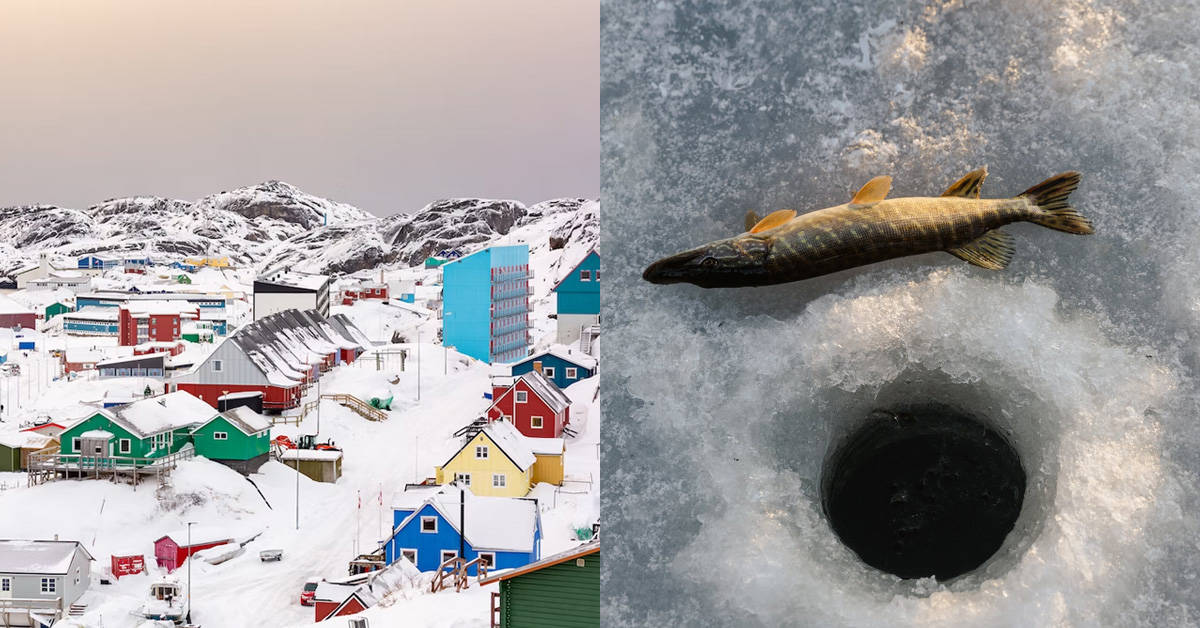Greenlandic cuisine is a unique blend of traditional Inuit and Scandinavian influences. Due to its remote location and harsh climate, the cuisine is heavily reliant on locally sourced ingredients such as fish, seal, whale, reindeer, and muskox.
The traditional methods of hunting, fishing, and gathering have been passed down through generations, resulting in a rich culinary heritage that is deeply rooted in the culture and history of Greenland. The cuisine is known for its simplicity, freshness, and sustainability, with a focus on preserving the natural flavors of the ingredients.
Greenlandic cuisine halal or not?
Is Greenlandic food halal?
Greenlandic food is not necessarily halal as it may contain ingredients that are not permissible in Islamic dietary laws, such as pork and alcohol.
However, there are some traditional Greenlandic dishes that are made with fish and other seafood, which would be halal for Muslims to consume.
It is important for Muslims to check the ingredients and preparation methods of any food before consuming it to ensure it is halal.
What kind of food do Greenlandic eat?
Greenlandic cuisine is heavily influenced by the traditional Inuit diet, which consists mainly of seafood, including fish, whale, seal, and walrus.
Other common foods include reindeer, muskox, and birds such as ptarmigan and seabirds. Vegetables and fruits are not widely available in Greenland, but some are imported.
Traditional dishes include kiviak (fermented seabirds), mattak (whale skin and blubber), and suaasat (a soup made with meat, fish, or both). Modern Greenlandic cuisine also includes international dishes and fast food.
How can you tell if the food is halal in Greenland?
You can look for halal certification labels on food products or inquire with the restaurant or food supplier about their halal certification.
You can also check with local Muslim communities or organizations for recommendations on halal food options in the area.
Is it hard to find halal food in Greenland?
As a predominantly Christian country, it may be challenging to find halal food in Greenland. However, some restaurants and grocery stores in larger cities may offer halal options.
It is recommended to research and inquire about halal food options before traveling to Greenland.
Is Greenlandic food healthy?
Greenlandic food is generally considered healthy as it is based on a traditional diet of fish, seafood, and game meat, which are rich in protein, omega-3 fatty acids, and other essential nutrients.
The diet also includes a variety of berries and herbs, which are high in antioxidants and vitamins. However, modernization and the introduction of processed foods have led to an increase in obesity and other health problems in Greenland.
What is Greenlandic food similar to?
Greenlandic food is similar to other traditional Arctic and Nordic cuisines, such as Icelandic, Norwegian, and Inuit cuisine. It often includes seafood, such as fish, shrimp, and seal, as well as game meat, such as reindeer, muskox, and whale.
It also features traditional ingredients like berries, herbs, and roots. Some dishes may be similar to those found in other cold climates, such as stews and soups.
Steps to find halal food in Greenland
Please refer to the following steps to find halal food in Greenland:
- Research online: Look for halal restaurants or grocery stores in Greenland through online search engines or social media platforms.
- Ask locals: Ask locals or other Muslims living in Greenland for recommendations on where to find halal food.
- Check food labels: When shopping for groceries, check the food labels for halal certification or ingredients that are permissible in Islam.
- Contact the restaurant or store: Contact the restaurant or store beforehand to confirm if they serve halal food or have halal options available.
- Bring your own food: If you are unable to find halal food, consider bringing your own food or snacks that are permissible in Islam.
- Consider vegetarian options: If halal meat is not available, consider vegetarian options as they are generally permissible in Islam.
- Be cautious: Always be cautious and double-check the ingredients and preparation methods of the food before consuming it.

